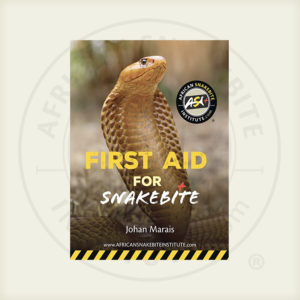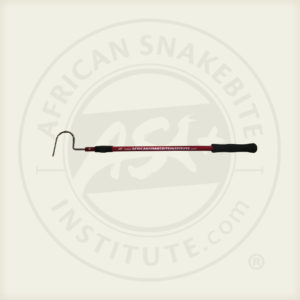Want to attend the course but can’t make it on this date?
Fill in your details below and we’ll notify you when we next present a course in this area:

These images have been the cornerstone of the growth and success of the African Snakebite Institute as can be seen in the hundreds of free posters that we have put together and are available on our website. We also share these images generously on social media (check out the ASI Snake Profiles and on our popular App ASI Snakes) and we have granted image use to a number of individuals and organizations who’ve requested use of the images for educational and non-profit causes.
Photographs belong to the photographer unless he/she is commissioned to do an assignment for a client and there is an agreement that the photographer relinquishes copyright of the photographs. Even if the use of a photograph is sold to a publication, the copyright still belongs to the photographer. This applies to all photographs in books, magazines or on social media. Even photographs listed by Google are subjected to copyright. Those images that are shared on social media are still subjected to copyright laws and while such posts can be shared, downloading the images and using them for other purposes would be a copyright infringement. Whether or not an image has a watermark is irrelevant – watermarks are easily removed by unscrupulous people.
The copyright of images shared on platforms like Instagram, Facebook and Twitter remain with the photographer, whether not such images are watermarked. Facebook, in term of their rules, have the right to use any material placed on Facebook for marketing purposes, but only on Facebook.
These social media pages are intellectual property companies and are acutely aware of copyright issues. Such infringements are seen in a serious light and photographs that are illegally used will be removed by them.
We share our material generously but also earn a living from selling images. We will continue to protect our intellectual property and will take the necessary legal action when photographs are stolen. Theft is theft.
CONTACT US:
Product enquiries:
Caylen White
+27 60 957 2713
info@asiorg.co.za
Public Courses and Corporate training:
Michelle Pretorius
+27 64 704 7229
courses@asiorg.co.za
 ASI Combo C
R1,680.00
ASI Combo C
R1,680.00
 ASI First Aid for Snakebite Booklet
R40.00
ASI First Aid for Snakebite Booklet
R40.00
 ASI Collapsible Snake Hook - 1.2 m
R650.00
ASI Collapsible Snake Hook - 1.2 m
R650.00
Want to attend the course but can’t make it on this date?
Fill in your details below and we’ll notify you when we next present a course in this area:
Want to attend the course but can’t make it on this date?
Fill in your details below and we’ll notify you when we next present a course in this area:
Want to attend the course but can’t make it on this date?
Fill in your details below and we’ll notify you when we next present a course in this area:
Want to attend the course but can’t make it on this date?
Fill in your details below and we’ll notify you when we next present a course in this area:
Want to attend the course but can’t make it on this date?
Fill in your details below and we’ll notify you when we next present a course in this area:
Want to attend the course but can’t make it on this date?
Fill in your details below and we’ll notify you when we next present a course in this area:
Want to attend the course but can’t make it on this date?
Fill in your details below and we’ll notify you when we next present a course in this area:
Want to attend the course but can’t make it on this date?
Fill in your details below and we’ll notify you when we next present a course in this area:
Want to attend the course but can’t make it on this date?
Fill in your details below and we’ll notify you when we next present a course in this area:
Sign up to have our free monthly newsletter delivered to your inbox:
Before you download this resource, please enter your details:
Before you download this resource, would you like to join our email newsletter list?